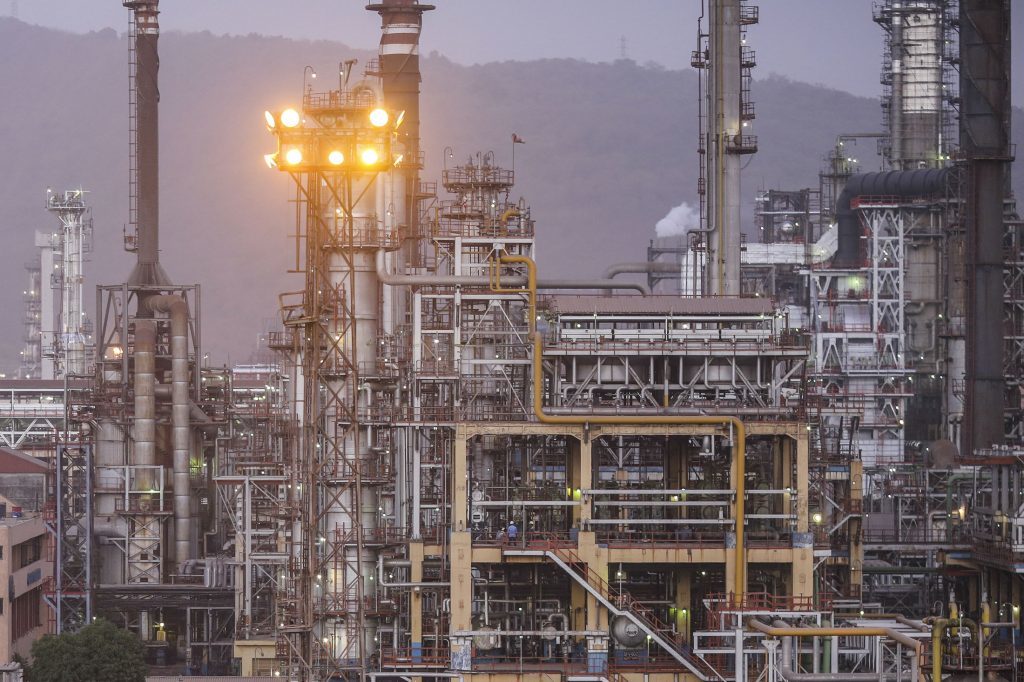
India’s Oil and Natural Gas Corporation plans to tap the debt market for the first time, an opportunity that may be hard to pass up for bond bulls.
India’s largest state-run energy producer may sell bonds and take out loans of as much as $4 billion to pay for the purchase of the government’s $5.2 billion stake in Hindustan Petroleum Corp. and bankroll $4.5 billion of projects, according to company executives with knowledge of the matter.
Given the company’s credit metrics — it has 130 billion rupees ($2 billion) of cash on its books and a long-term rating that’s a notch above the government — the issuance will be bought by investors drawn to one of the world’s fastest growth rates and Prime Minister Narendra Modi’s economic policies.
“The sentiment is positive toward India and because the supply from Indian corporates is limited, there will be demand,” Rishabh Tiwari, a Zurich-based fund manager for emerging market credit at Swiss Life Asset Managers, said in an interview. “ONGC has strong credit fundamentals and the acquisition of HPCL will help it diversify into downstream refining.”
The appetite for India’s corporate debt is so strong that Hindustan Petroleum’s $500 million offering in July attracted bids for six times the amount. Billionaire Anil Agarwal’s Vedanta Resources Plc last week sold seven-year dollar notes in its second $1 billion sale this year.
Even so, the planned fundraising could weaken ONGC’s credit profile at a time when earnings have been hit by the slump in global energy prices. Estimated cash flows of about 400 billion rupees this fiscal won’t be enough to pay for the planned investments, the executives said, asking not to be identified as they are not authorized to speak publicly.
Risk Premium
To Swiss Life Asset and Frankfurt-based Union Investment Privatfonds, it boils down to how attractively the issuance is priced. The HPCL acquisition, if funded by debt, could lead to the company’s standalone rating being cut by a notch, Swiss Life’s Tiwari said.
“If ONGC is willing to reflect the increased credit risk premium in light of the transaction, there’ll be interested investors,” said Hyun Kim, who manages $2 billion under four funds at Union Investment. “ONGC was one of the strongest quasi-sovereign credits before the HPCL transaction was announced. Leverage will likely increase with this, but the company should be able to handle it.”
The company hasn’t borrowed since at least 1993 when it was converted into a corporation, the executives said. Its overseas investment unit, ONGC Videsh Ltd., has tapped the market to fund purchases of oil and gas blocks.
Moody’s Investors Service has a Baa2 score on ONGC’s debt, making it the nation’s highest rated state-run company, said Vikas Halan, vice president and senior credit officer at rating company. That should provide the company with a “very strong access” to funding.
Recommended for you
